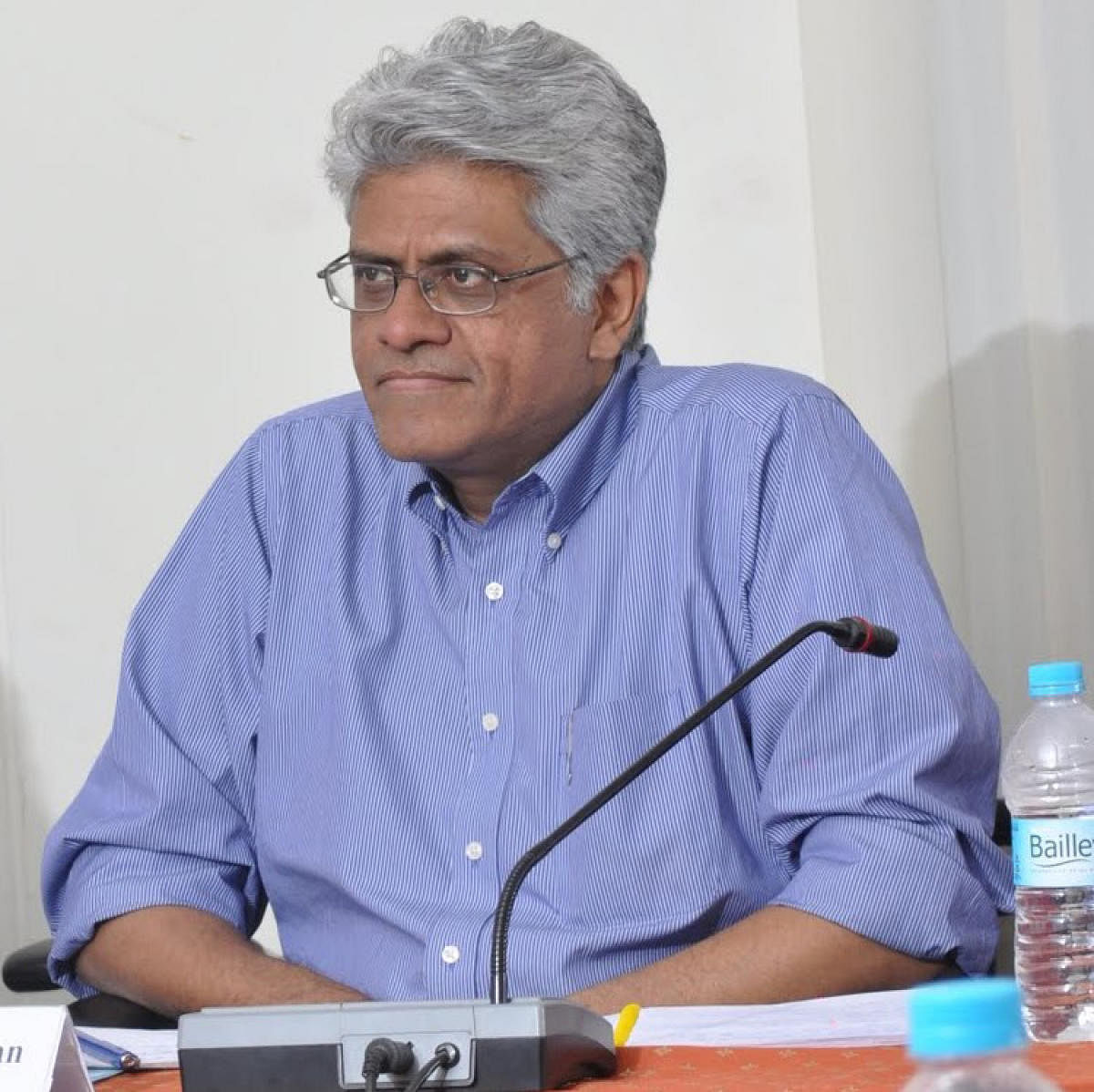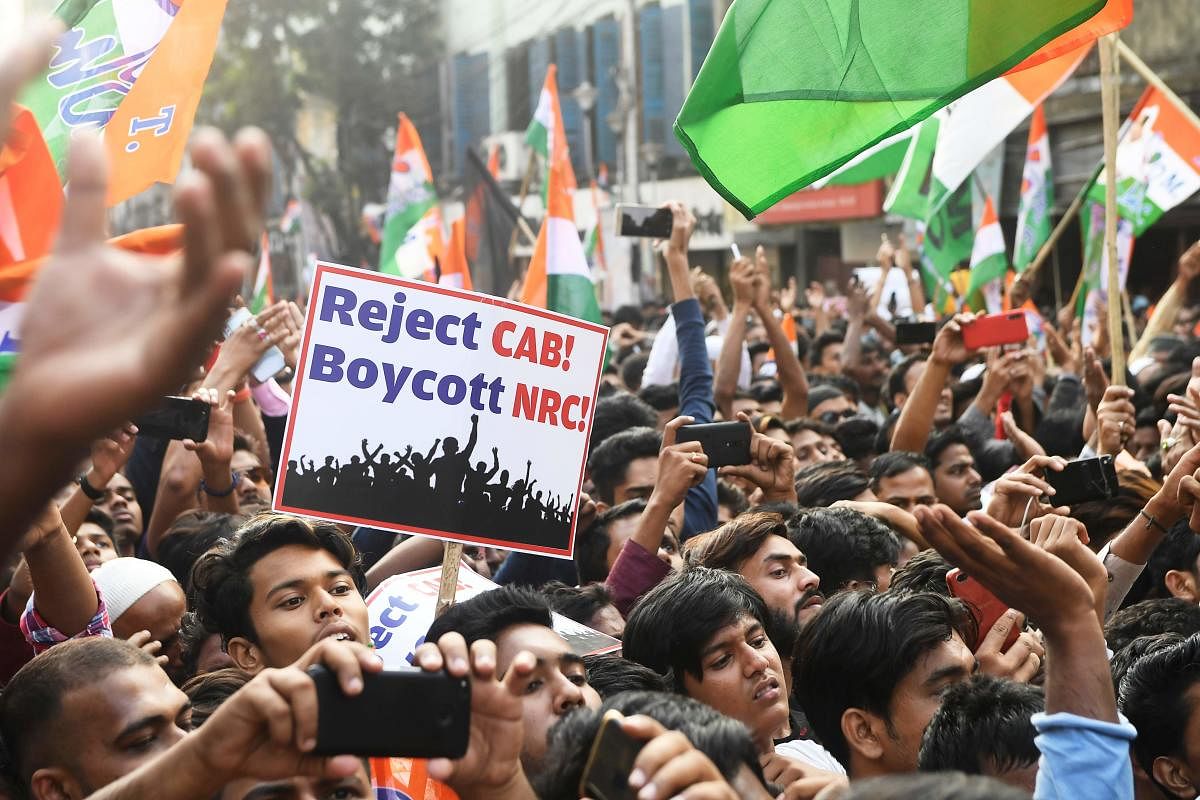

Elections have consequences. They endow winners with defined powers, while losers sit out a term in opposition. After the elections fought in the real world, facts on the ground determine the limits of feasible action. When an election occurs in the realm of faith, winners tend to seek liberation from facts and stretch the limits.
The consequences of the 2019 general election to the Lok Sabha have unfolded very rapidly. Prime Minister Narendra Modi was given a second term to fulfill what remains of an agenda nurtured since his political baptism in the Rashtriya Swayamsewak Sangh (RSS). But he is evidently a man in a hurry, untethered by the magnitude of his second victory.
Freedom from facts was asserted in numerous ways through the 2019 campaign: in waving away with offhand disdain repeated warnings about the downward economic trajectory, in rubbishing official surveys indicating record unemployment levels, in deflecting public scrutiny of an air-strike on Pakistan that produced, at best, ambiguous results.
Rancour was amply on display at the same time, as with Modi’s principal lieutenant, Amit Shah (now Union Home Minister) vowing to get rid of “infiltrators” who threatened the national fabric like “termites”. “Shock and awe” was the strategy, which yielded disproportionate success against an opposition that was out-manouevred and out-spent.
But facts are stubborn things. Even if the politician is unable to harness them to a cause, they will assert themselves as part of the lived reality of millions. Modi 2.0 has shown an embarrassing paucity of ideas about restoring the flagging economy to a semblance of health. The first impulse was denial, Finance Minister Nirmala Sitharaman finding ample blame to go around. And then came a stimulus package steeped in formulaic thinking, that gifted huge tax breaks to the wealthy.
Despite a debilitated opposition, the BJP was soon making heavy weather of state assembly elections. As former finance minister P Chidambaram said, it was “dented in Haryana, denied in Maharashtra and defeated in Jharkhand.” Viewed in terms of ruling parties in the states, the political map has been transformed in just a year. The BJP today controls half the country’s elected legislatures, many with restive allies, but rules well below half the population. Going forward to elections in Delhi and Bihar next year, its prospects look bleak.
If Modi and Shah have in reserve a strategy to placate public anxieties, they have successfully kept it secret so far. On public display is, instead, a tendency to inflame matters when the going gets tough, doubling down on core elements of the RSS agenda. The legislative adventurism on Jammu and Kashmir, when a transitional phase of President’s rule was leveraged to effect permanent change in the state’s constitutional status, has deepened alienation and widened the emotional gulf with the rest of India. Five months into the lockdown in Kashmir, concerns are mounting globally about India’s intent in its only Muslim majority state.
Then came the tipping point. While introducing the Citizenship Amendment Bill in Parliament, Home Minister Shah spoke of a “minority” from neighbouring countries of Muslim predominance as a “reasonable classification”, permitting special provisions without violation of the equality principle in Article 14 of the Constitution. Again, with a disoriented opposition unsure about what precisely it found objectionable, the government pushed the Bill through. In the process, a core republican principle on separation of religion and citizenship stood diminished, if not destroyed.
As protests broke out, first in university campuses that celebrate India’s Islamic heritage and then more broadly, Modi and Shah responded the only way they know, by ramping up the confrontation. From Uttar Pradesh, Chief Minister Yogi Adityanath, the third face of the BJP’s leadership pantheon, urged “revenge” against those who dared protest.
Narendra Modi vowed after February’s military exchange with Pakistan that had pushed the two countries perilously close to full-scale hostilities, that the “new India” under his leadership would take its fight into enemy homes. “Ghar mein ghus ke maarenge”, were his precise words as he opened his election campaign in Gujarat. At year’s end, Adityanath was putting that promise into effect, except that the chosen targets were Muslim homes in India. After days of disproportionate force against demonstrators and directed violence by the police, much of it captured in disturbing cellphone videos, Adityanath administered the coup, imposing a severe fine on those who protested.
In remarks that dog-whistle an unsubtle Islamophobia, Modi and his associates have portrayed the protests as a narrow affair. Yet the massive youth participation in protests across the country display an energy likely to tap into an ongoing demographic transition. It is a transition that promises a dividend as the “youth bulge” begins to dominate India’s demographic profile. But without some manner of purposive thinking on employment, the dividend risks transformation into disaster.
Unrest within civil society seems a likely forecast for 2020 and so, too, growing tensions between states and the Union. From its stubborn moorings in the world of faith rather than fact, the BJP has refused to allow a full reckoning of two signature policy moves from Modi’s first term: demonetisation and the Goods and Services Tax (GST). Yet the expert consensus today is that India slipped into a slough of economic despond with the first and sank deeper with the second.
GST receipts have stagnated and could spiral downwards as the economic slowdown persists. States are anxious at miscued forecasts of a revenue abundance and the possible denial of promised shares.
If the Modi government’s actions on Kashmir were a flashpoint for global concerns over the future of India’s democracy, its subsequent moves have triggered more substantive worries.
With the politics of conciliation being alien to its repertoire, the BJP’s strategy has been to win by creating schisms. The flight into the world of faith continues, as does the denial of a fact-based discourse, through for instance, internet blockades in which India is now world leader. These are little less than a recipe for continuing turmoil.
The writer is a Delhi based senior journalist